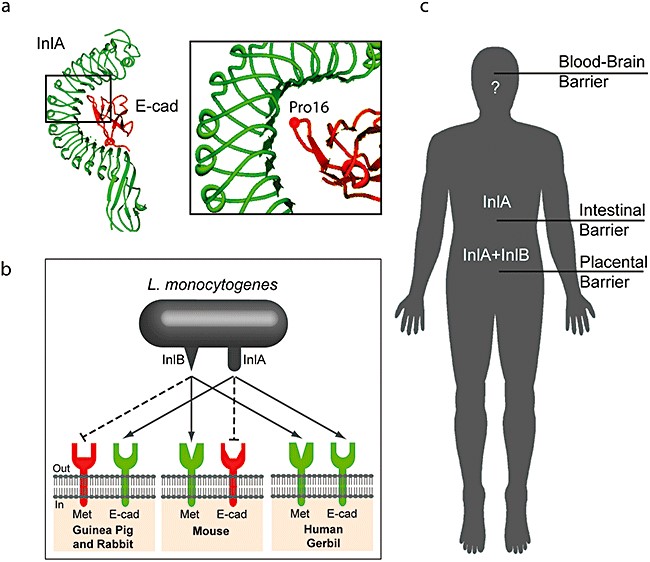Chronic Fatigue Syndrome: Understanding Gut Microbiomes
Millions of people suffer with chronic fatigue syndrome (CFS), also known as myalgic encephalomyelitis, which is characterised by crippling weariness and mental fog. Although COVID-19 and other viral infections have been linked to CFS, the true origin of the illness is still unknown. The condition's inexplicable fatigue symptoms have been linked to changes in gut microbe composition, according to a recent study headed by scientists at Columbia University's Mailman School of Public Health and published on February 8 in Cell. According to this study, the beneficial gut microbe Faecalibacterium prausnitzii may significantly lessen tiredness in CFS sufferers.[1]

Figure .1 chronic fatigue syndrome: Understanding Gut Microbiomes
Figure 1 shows Researchers led by Brent L. Williams from Columbia University made a surprising discovery regarding chronic fatigue syndrome (CFS). Despite the diverse symptoms associated with CFS, their study found that a specific bacterium, Faecalibacterium prausnitzii, emerged as a key player. This is unexpected since F. prausnitzii deficiency is typically linked to other health conditions like Crohn's disease and psoriasis. The team utilized fecal microbiome shotgun metagenomic sequencing to analyze the relative abundance of bacteria in fecal samples from 106 CFS patients recruited from different locations in the United States.
In a study comparing the gut microbiomes of individuals with chronic fatigue syndrome (CFS) to healthy subjects, researchers discovered that CFS patients had reduced levels of the beneficial bacteria Faecalibacterium prausnitzii and Eubacterium rectale. These bacteria play a role in producing butyrate, a fatty acid that helps break down fiber. Lower levels of butyrate have been associated with various diseases, including colon cancer, insulin resistance, and inflammatory bowel disease. Interestingly, lower levels of F. prausnitzii were also linked to the severity of fatigue symptoms in CFS. The study matched CFS patients with controls based on various factors such as sex, age, socioeconomic status, and geography.
A study led by researchers at Columbia University has found a potential link between the composition of gut bacteria and chronic fatigue syndrome (CFS), also known as myalgic encephalomyelitis. The study used fecal microbiome sequencing to compare the gut microbiomes of individuals with CFS to healthy subjects. It discovered that levels of the bacteria Faecalibacterium prausnitzii and Eubacterium rectale were reduced in CFS patients. These bacteria play a role in producing butyrate, a fatty acid involved in breaking down fiber. Reduced levels of butyrate have been associated with various diseases, and lower levels of F. prausnitzii were correlated with the severity of fatigue symptoms in CFS. While the study did not establish a causal link, it suggests potential targets for future therapeutic trials and could contribute to earlier diagnosis of CFS.
The research group at Columbia University is currently working on conducting further studies using mouse models to establish the relationship between levels of Faecalibacterium prausnitzii and fatigue symptoms in chronic fatigue syndrome (CFS). This research aims to provide valuable insights into the development and evaluation of potential treatments for CFS.
In conclusion, the study on chronic fatigue syndrome (CFS) and gut microbiomes provides insights into the potential role of specific bacteria in the development and severity of CFS symptoms. The research indicates that individuals with CFS have reduced levels of beneficial bacteria, including Faecalibacterium prausnitzii and Eubacterium rectale, which are involved in the production of butyrate. Lower levels of these bacteria and butyrate have been associated with various diseases and may also influence the severity of fatigue symptoms in CFS. These findings contribute to our understanding of the complex relationship between gut microbiomes and CFS, highlighting the potential for microbiome-based interventions in managing CFS and related conditions. Further research is needed to explore the underlying mechanisms and develop targeted therapies for CFS based on gut microbiome modulation.
References:
- https://www.the-scientist.com/news-opinion/gut-microbiomes-offer-insights-into-chronic-fatigue-syndrome-70968
Cite this article:
Janani R (2023),chronic fatigue syndrome: Understanding Gut Microbiomes, AnaTechMaz, pp.178















